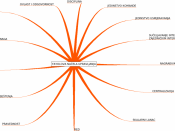Introduction
Henri Fayol, a French engineer who worked his way up to become the director of mines, published "Administration Industrielle et Generale " in 1916. Constance Sorrs did not translate the publication to English until the 1940s. Fayol was therefore mostly overlooked by the American writers of the time. Fayol was at the forefront of the classical school of management theory, which helped develop the principles of a modern manager.
The main points to come out of his publication were his 14 principles of management. That all activities within a firm can fit into six functions technical, commercial, financial, security, accounting and managerial activities.
In response to the question "what is managerial activates?" he developed his five functions of management. He believed that these five functions could be taught and were not something that you were born with. So to what extent can a theory on management published almost 100 years ago still be relevant in a modern, medium sized building firm? First we should look at what his five functions are.
Fayols five functions of management
Fayol defined five functions that any manager must perform. These are
Plan and forecast
Planning is the setting out of goals and objectives of the company as well as the employee. The manager must also specify the means to achieving these goals. Forecasting is closely linked to planning and involves making sure your plans take account of what is expected to happen in the future. In today's world forecasting and planning would mean the same thing.
Organising
Organising involves creating a structure to help achieve these goals and objectives. The manager must determine all the tasks that have to be done and allocate these tasks to the employees. Organising, involves translating the planned steps into a reality through the means of...


